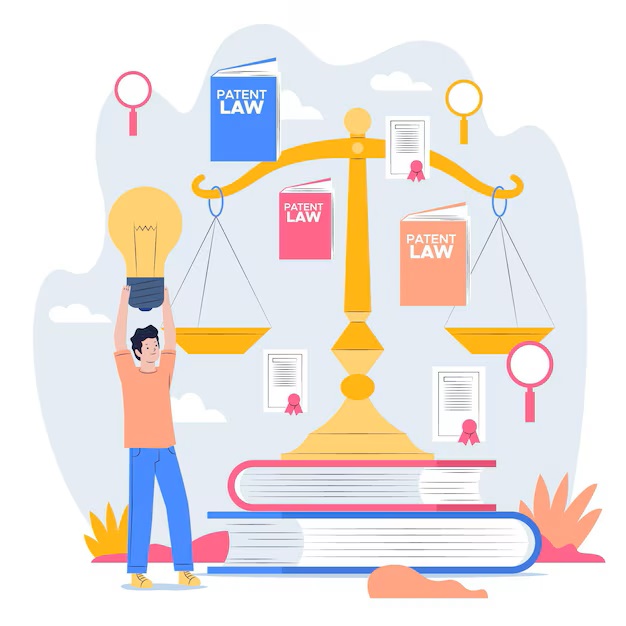The landscape of professional certification often faces scrutiny as stakeholders evaluate the efficacy and relevance of existing procedures. Recent discussions have highlighted the complexities surrounding the introduction of fresh evaluation methods, especially in the context of legal professions. Proponents argue for the necessity of reform to better align assessments with modern practice, while the opposition raises concerns regarding potential disruptions and the implications for aspiring candidates.
Amidst these debates, a recent decision has sparked significant interest and analysis within the legal community. This choice reflects a broader hesitation towards embracing innovative techniques designed to measure competence and readiness for practice. Critics suggest that the current systems may not adequately prepare individuals for the practical realities of their chosen field, yet the risks associated with overhauling foundational frameworks remain a central point of contention.
As the conversation unfolds, many are left pondering the balance between tradition and progress. The challenge lies not only in crafting assessments that accurately reflect the required skills but also in ensuring that any transition is smooth and accessible for all participants. The complexities of this issue navigate through various layers of policy, education, and professional accountability, raising critical questions about the future of legal evaluations.
Background of Florida’s Bar Exam Changes
This section explores the historical context and rationale behind the recent adjustments in the assessment process for legal practitioners in the state. Understanding the evolution of these evaluations sheds light on the complexities and challenges faced by aspiring attorneys.
The movement towards revising the evaluation framework can be traced back to various factors that reflect changes in the legal landscape. Some of these factors include:
- An increased focus on practical skills as essential components of legal education.
- Feedback from stakeholders regarding the effectiveness and relevance of traditional testing methods.
- The influence of broader trends in legal education and certification across the nation.
Over the years, discussions surrounding the assessment process have involved numerous stakeholders, including:
- Legal educators who emphasize the need for a curriculum aligned with real-world practice.
- Current practitioners advocating for methodologies that better prepare candidates.
- Regulatory bodies reviewing the standards and criteria for evaluating competency.
As these conversations evolved, proposals for alternative approaches emerged, reflecting a commitment to enhancing the effectiveness of certifications. However, not all proposals received unanimous support, leading to debates on the best path forward for evaluating future members of the legal profession.
Reasons for Declining New Exam Format
The decision to not proceed with the recent format change stems from various concerns raised by stakeholders in the legal community. Many believe that altering the assessment style could have unintended negative effects on future professionals entering the field.
One significant issue relates to the potential challenges faced by candidates. A transition to a different structure might leave many aspiring lawyers unprepared, as they may not be familiar with the updated format, thereby impacting their performance and confidence.
Another critical factor is the established tradition surrounding the current evaluation system. Legal education and assessment methods have a long-standing history that many practitioners feel should not be disrupted without clear and compelling justification.
Additionally, the costs associated with implementing a new assessment system cannot be overlooked. Resources would need to be allocated for training, materials, and logistics, placing an additional financial burden on both candidates and educational institutions.
Finally, there exists a concern regarding the reliability of data that supports a change. Many in the field advocate for maintaining proven methods until sufficient evidence can demonstrate the effectiveness of the proposed adjustments.
Impact on Law School Graduates
The recent decision regarding the assessment process for aspiring attorneys raises significant questions about the future of legal education and the transition from academia to practice. Law school graduates may face both immediate and long-term effects as they navigate their careers in the evolving legal landscape.
- Job Market Adjustments: The alteration in evaluation practices could shift hiring criteria among law firms, impacting the competitiveness of recent graduates.
- Preparation Resources: Institutions may need to revisit their curriculums, ensuring that students are fully equipped for the practical challenges of their profession.
- Emotional and Financial Strain: Graduates might experience increased anxiety over their employability and the investments they made in their education, which could affect their overall well-being.
- Skill Development: A continuing emphasis on practical skills may arise, compelling schools to adjust their teaching methods to align with current legal practice demands.
- Networking Opportunities: The alteration might lead to new initiatives encouraging stronger connections between students and practicing attorneys, enhancing job prospects.
Ultimately, the implications for those completing their legal studies could be profound, shaping not only their immediate career paths but also the broader expectations and structures within the legal profession for years to come.
Reactions from Legal Community Stakeholders
The decision concerning the introduction of a revised assessment process has sparked a variety of responses from individuals and organizations within the legal profession. These reactions reflect the diverse perspectives of lawyers, educators, and prospective candidates, each contributing to the ongoing dialogue about the future of licensure in the legal field.
Supportive Voices
- Educators: Several law school professors have expressed approval, emphasizing the need for a method that better evaluates practical skills and readiness for practice.
- Legal Associations: Various bar associations have voiced support, suggesting that the current evaluation procedures may not adequately prepare candidates for the complexities of modern legal challenges.
- New Lawyers: Emerging attorneys have indicated relief, believing that maintaining the existing structure could ensure a smoother transition into their legal careers.
Critical Perspectives
- Established Practitioners: Senior members of the bar have raised concerns, citing that the current measures could benefit from innovation and adaptation to current legal dynamics.
- Candidates: Some aspiring lawyers have expressed disappointment, arguing that the delay in change limits opportunities for enhanced assessment that reflects real-world legal practice.
- Policy Analysts: Experts in legal education reform have criticized the status quo, advocating for a comprehensive rethink of assessment strategies to align with evolving industry standards.
Comparison with Other States’ Exams
This section explores the varying methodologies and structures employed by different jurisdictions regarding the evaluation of legal proficiency. Each state has its unique approach, reflecting local values and priorities in the legal profession.
Variations in Testing Formats
- Essay Components: Many regions include extensive written sections that assess analytical abilities and legal reasoning.
- Multistate Tests: A standardized set of questions is utilized by several states to gauge foundational legal knowledge.
- Practical Assessments: Some jurisdictions have incorporated practical scenarios to evaluate candidates’ applied skills in real-world situations.
Grading Criteria and Standards
- States may use different scoring systems, impacting the bar passage rates significantly.
- There can be considerable variability in grading rigor, with some areas adopting a more stringent evaluation process.
- Criteria for passing can vary, ranging from holistic assessments to strictly numerical thresholds.
Understanding these differences can provide valuable insights into the qualifications needed to join the legal profession across various regions, highlighting the diverse landscape of legal education and assessment in the United States.
Future Implications for Florida Lawyers
The decision to halt the rollout of a revised assessment for legal practitioners carries significant consequences for the professionals in the legal field. As the landscape of legal qualifications continues to evolve, understanding how these changes affect future attorneys is paramount.
Potential Advantages
- Continued familiarity with existing standards may lead to a smoother transition for new entrants into the profession.
- The status quo allows for ongoing mentors and educational systems to operate without interruption.
- Stability in evaluation criteria might enhance public confidence in the legal system.
Challenges Ahead
- The absence of innovative assessment methods could result in stagnation in legal education quality.
- As other regions adopt new qualifications, local practitioners may find themselves at a competitive disadvantage.
- Potential implications for client trust and perceptions of professionalism might arise from outdated evaluation standards.
Future developments hinge on proactive measures taken by legal institutions to adapt and innovate while addressing the needs of practitioners and clients alike.
Q&A: Florida says no new bar exam now
Why did Florida decide not to implement the new bar exam?
The decision to decline the implementation of the new bar exam in Florida was primarily based on feedback from various stakeholders, including law schools, bar examiners, and practicing attorneys. Concerns centered around the exam’s format, its efficacy in evaluating a candidate’s readiness to practice law, and the potential negative impact it could have on aspiring lawyers. Many argued that the new exam did not adequately align with the state’s legal practice requirements and that it could disproportionately affect certain candidates, potentially reducing diversity within the legal profession.
What are the key differences between the current bar exam and the proposed new exam?
The current bar exam in Florida primarily focuses on multiple-choice questions and essays that assess candidates’ knowledge of state law and ethics. The proposed new exam included innovative assessments aimed at testing practical skills and critical thinking in real-world scenarios. Advocates for the new exam believed that it would better prepare candidates for the challenges of legal practice. However, critics were concerned that the changes might complicate the exam process and not significantly improve the readiness of new lawyers entering the profession.
How might this decision affect law students and recent graduates in Florida?
The decline of the new bar exam implementation in Florida may provide some relief to current law students and recent graduates who were anxious about preparing for a potentially more difficult exam. With the existing exam format remaining in place, candidates may feel less pressure and uncertainty regarding their chances of passing. However, it may also signify a broader debate about the adequacy of the current bar exam in assessing necessary legal competencies, leaving students to consider how they can best prepare themselves for a constantly evolving legal landscape in their future careers.
What are the implications of Florida’s decision for the broader legal community?
Florida’s decision not to adopt the new bar exam reflects significant tensions within the legal community regarding how best to evaluate incoming lawyers. For bar associations and legal educators, this decision may prompt a re-evaluation of existing standards and the role of standardized testing in law school education. Moreover, it may influence other states considering similar reforms, showcasing the potential challenges and pushback associated with changing long-standing examination practices. Ultimately, this could lead to wider discussions about legal education reforms and the need for more practical training in law schools across the country.
Will there be any future discussions or evaluations about changing the bar exam in Florida?
While Florida has currently declined the implementation of the new bar exam, it is likely that discussions surrounding the bar exam will continue in the future. Stakeholders within the legal community, including the Florida Bar and law schools, may initiate ongoing evaluations of the effectiveness of the current exam format and its alignment with the skills needed for practice. Moreover, changes in legal practice, evolving legal education standards, and demographic shifts among law students may prompt renewed interest in modifying the exam. Therefore, staying informed about any potential reforms will be important for all current and future law practitioners in Florida.
Why did Florida decide to decline the implementation of the new bar exam?
Florida’s decision to decline the implementation of the new bar exam stems from a variety of concerns raised by legal experts, educators, and law students. Many believe that the proposed changes would not only complicate the existing examination process but also potentially disadvantage certain candidates, particularly those who may not have access to the same resources for preparation. Additionally, the state’s legal community expressed a desire to maintain the current examination format, which has shown to be effective in assessing the competency of future lawyers. The state bar also took into consideration the ongoing discussions around equity in legal education and the bar admission process, ultimately deciding that further evaluation and refinement of the proposal were necessary before moving forward.
What decision did the Florida Supreme Court make regarding the implementation of the NextGen bar exam?
The Florida Supreme Court has recently stated that Florida will not use the new version of the bar exam when it debuts in July 2026. This decision comes as a significant early blow to the revamped test that the National Conference of Bar Examiners (NCBE) proposed. The Florida Board of Bar Examiners expressed concerns about the NextGen bar exam format, stating that the current bar examination adequately assesses the skills necessary for entry-level attorneys. As a result, Florida says no to new bar exam formats, opting instead to maintain its traditional bar exam structure for the foreseeable future.
What is the timeline for the implementation of the NextGen bar exam and how might it impact law schools in the U.S.?
The NextGen bar exam is set to debut in July 2026, with various jurisdictions, including Florida, indicating their intention to join this new testing format by July 2028. This timeline poses significant implications for law schools across the U.S., as they will need to adapt their curricula to align with the NextGen exam’s emphasis on practical legal skills and a practice analysis approach. According to Reuters, the Florida Board of Bar Examiners (FBBE) has made a recommendation to begin integrating the new bar exam test into legal education, suggesting that incoming law students could also benefit from these changes. However, the Florida Supreme Court’s decision to hold off on using the NextGen format may delay broader adoption in other jurisdictions, particularly as law schools assess the impact on their students and future examinees.
How does the NextGen bar exam address privacy and security concerns that have been raised by stakeholders in the legal community?
Privacy and security are significant concerns in the development of the NextGen bar exam, particularly in light of the increasing emphasis on cybersecurity within the legal profession. The National Conference of Bar Examiners is aware of these concerns and has made recommendations to ensure that the new bar exam test adheres to strict privacy policies and safeguards for examinees. This focus on privacy is crucial as the NextGen exam is designed to better reflect the realities of legal practice, including areas like litigation and arbitration. Karen Sloan from legal news outlets has reported that stakeholders are closely monitoring the NextGen bar exam’s implementation, as the success of the exam will depend on its ability to maintain the confidentiality and integrity of the testing process, which is vital for newly admitted lawyers seeking their licenses.
What are the anticipated implications of the NextGen bar exam for law schools and legal education in 2024?
As the NextGen bar exam is set to debut in July 2026, law schools are preparing for significant changes in their curricula to align with this new testing format. Florida is set to join the initiative, which has raised discussions about how legal education will adapt to meet the requirements of the NextGen exam. Bar examiners said that the new version is designed to assess practical skills more effectively, prompting law schools to adopt the NextGen framework as part of their training programs. This early blow to traditional methods, as described in news and insights from legal experts, indicates that incoming law students may face a different approach to their studies as schools adjust their focus toward relevant business information and practical legal scenarios. With about 20 other jurisdictions considering similar shifts, the impact of the NextGen bar exam will likely be felt across the U.S. judiciary, influencing how future lawyers prepare for class action litigation and other legal practices. As schools strive to equip students for the challenges of the evolving legal landscape, the transition will require substantial planning and adaptation over the next few years, particularly as law schools prepare for the incoming class of 2024.
What is the significance of the nextgen bar exam starting in July 2026?
The nextgen bar exam starting in July 2026—an early blow to traditional testing methods—aims to assess candidates’ readiness for practice in the business of law. Florida law school students and others across various bar exam jurisdictions will need to adapt to this new format, which integrates practical skills into the multistate bar exam. As the California Supreme Court and the board of trustees continue to refine the exam, law schools must prepare students accordingly. CLE providers may also offer courses to help candidates use the nextgen bar format effectively. Those interested should subscribe to updates and check their inbox for important information regarding user agreements and any changes to the requirements. Failure to adapt could lead candidates to sue if they feel unprepared as the exam approaches in three weeks after the bar exam administration in 2022, which will set the stage for this transition.
What can we expect from the nextgen bar exam that debuts in July 2026—an early indicator of changes in legal education?
The nextgen bar exam debuts in July 2026—an early reflection of evolving legal education and practice standards. Law schools have been adapting their curricula since 2020 to prepare students for this new format, which emphasizes practical skills and real-world application of legal knowledge. As legal professionals anticipate this significant shift, the verdict on the effectiveness of the exam will be closely monitored, impacting how future lawyers are trained and assessed. This change aims to better align legal education with the demands of the profession, ensuring that graduates are equipped to meet the challenges of modern practice.







